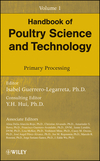Rabobank has published a new report on the U.S. cattle industry, calling for changes in the way beef is produced in order for the industry to remain competitive. In the new report, “Ground Beef Nation,”, Rabobank says that changing consumer preferences and a production model tailored to production of top-shelf steaks has put the U.S. cattle industry in a position of losing market share to competitive proteins.
“The industry must change to a production model that determines the best end use of an animal as early as possible, in order to compete in a ‘ground beef nation’”
“Under the existing business model, the U.S. cattle industry manages all fed beef as if it were destined for the center of the plate at a white table cloth restaurant,” notes Rabobank cattle economist Don Close. “The industry is, essentially, producing an extraordinarily high-grade product for consumers who desire to purchase a commodity. More than 60% of U.S. beef consumption is ground product. If the U.S. cattle industry continues to produce ground beef in a structure better suited to high-end cuts, the result will be continued erosion of market share.”
The report goes on to explore the trend of changing consumer preferences and the role pricing plays in the notable decline in beef consumption. The industries that produce competitive proteins such as pork and chicken have grown and become more efficient, making the products more readily available at competitive prices.
“The industry must change to a production model that determines the best end use of an animal as early as possible, in order to compete in a ‘ground beef nation’,” notes Close. “A new system for end-use categorization that influences calf selection, cattle management, production costs, and feeding regimen throughout the life of the animal is vital to keeping beef competitive with other choices at the meat counter.”
Source: Rabobank








